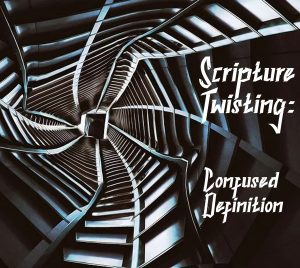 “Confused definition” means, “A biblical term is misunderstood in such a way that an essential biblical doctrine is distorted or rejected.”[1]
“Confused definition” means, “A biblical term is misunderstood in such a way that an essential biblical doctrine is distorted or rejected.”[1]
Let’s look at several Watchtower examples.
I won’t go into detail refuting each one. Rather, my goal will be to identify them so you will know the sort of thing to look out for.
Example #1: “Resurrection”
On page 333 of Reasoning from the Scriptures (1984), the Watchtower correctly states: “Anastasis, the Greek word translated ‘resurrection,’ literally means ‘a standing up again’ and it refers to a rising up from death.”
But two sentences later it goes off track by inserting its own doctrines: “Resurrection involves a reactivating of the life pattern of the individual, which life pattern God has retained in his memory. According to God’s will for the individual, the person is restored in either a human or a spirit body and yet retains his personal identity, having the same personality and memories as when he died.”
Notice that the Watchtower explanation confuses matters by contradicting the definition it gave in the first sentence:
- In the Watchtower’s view, there is nothing that dies and then stands up again.
- It teaches a re-creation, not a resurrection.
- The Watchtower doesn’t believe resurrection is a reuniting of your soul with your body because it teaches that the soul is the same as the body.
- Instead, the Watchtower teaches that God creates a new body and implants his memories of the person’s “life pattern” into it (whatever that is), analogous perhaps to transferring software from one piece of computer hardware to another.
- In contrast, 1 Corinthians 15:37-38 compares resurrection to a seed producing a plant. The seed and the plant aren’t identical, but there is continuity. (I discussed this subject in detail in a post a couple years ago.)
Example #2: “Spirit”
In Reasoning from the Scriptures, 1984, p. 380, the Watchtower states that the Hebrew and Greek words for “spirit” (ruach and pneuma) “are used with reference to (1) wind, (2) the active life-force in earthly creatures, (3) the impelling force that issues from a person’s figurative heart and that causes him to say and do things in a certain way, (4) inspired utterances originating with an invisible source, (5) spirit persons, and (6) God’s active force, or holy spirit.”
This is a typical Watchtower tactic. They cite Hebrew and Greek words. They include some meanings that are not objectionable. Then they add in meanings [(2) and (6) above] which are definitions of their own creation which are contrary to scripture.
- (2) describes human beings’ spirits in terms purely impersonal terms (“active life force”) and claims that they are no different from the impersonal forces that animate animals and fish.
- (6) defines “holy spirit” (note the lower case letters) as an impersonal, “active force” (thereby trying to refute the Trinity by its definition).
It repeats these definitions so often that Jehovah’s Witnesses think the Bible actually uses them. Even people who are just studying with Witnesses often quickly come to accept the definitions, not realizing that the Bible uses the terms quite differently.
Example #3: “Born again”
In the Bible, the new birth is an action by God by which a sinner is changed from the inside out and so is saved.
However, the Watchtower doesn’t mean that at all.
On page 76 of Reasoning from the Scriptures (1984), the Watchtower states: “Being born again involves being baptized in water (“born from water”) and begotten by God’s spirit (“born from . . . spirit”), thus becoming a son of God with the prospect of sharing in the Kingdom of God. (John 3:3-5) Jesus had this experience, as do the 144,000 who are heirs with him of the heavenly Kingdom.”
In Watchtower teaching, the new birth is God’s way of designating a person for spirit life in heaven, something the Watchtower says Jesus needed to have, even though he was sinless.
Elsewhere, the Watchtower adds this comment: “A relatively small number of Christians look forward to receiving ‘an incorruptible and undefiled and unfading inheritance’—the priceless privilege of ruling with Christ in heaven. (1 Pet. 1:3, 4) To receive that inheritance, these individuals must be ‘born again.’ (John 3:1-3)” (Watchtower, 5/15/2013, p. 27)
This is another example of the Watchtower inculcating its aberrant doctrines though the use of non-biblical definitions of Bible words and phrases.
Combatting This Error
Here are suggestions for detecting and avoiding the “confused definition” error.
- Never assume the Watchtower is using words the same way you do.
- Never assume the Watchtower defines terms the same way the Bible does.
- If the Watchtower gives several definitions for a word or phrase, don’t assume that all of the meanings are accurate just because some of them are.
- If a Watchtower teaching seems questionable to you, identify the key words and phrases and get Witnesses to give you the definitions they are using.
- When in doubt, get a Bible dictionary, look up the words and phrases, and compare them to the meanings given them by the Watchtower.
When talking with Jehovah’s Witnesses:
- Address definition conflicts as soon as you become aware of them.
- Define your terms and have Witnesses give you their definitions.
- If you can’t agree on definitions, make clear in your discussions what you believe the Bible means by the terms and show the Witnesses how the difference significantly affects Bible understanding.
In other words, be sure both you and the Witnesses understand what you are talking whenever you talk about it.
Reference:
- Scripture Twisting: 20 Ways the Cults Misread the Bible, James W. Sire (InterVarsity Press, Downers Grove, Illinois, 1980), p. 158

Leave a Reply
1 Comment on "The Watchtower Confuses Definitions"